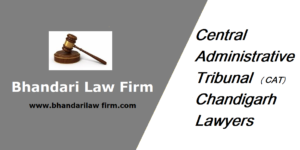MAINTENANCE AND WELFARE OF PARENTS AND SENIOR CITIZENS ACT, 2007
If you want to take a glimpse of the whole city, you go to hill top. You cannot possibly see the whole city from the bottom of the hill. This is true for the older generation as well. Maintenance and Welfare of Parents and Senior Citizens Act, 2007
Origin Of MWPSC Act 2007 Maintenance and Welfare of Parents and Senior Citizens Act, 2007
Any country or society is made by different generations of people. Most of the countries consider the young and the adults as the most important and essential element in the society that can help in the development of the society but the importance of the old people in country cannot be ignored. Maintenance and Welfare of Parents and Senior Citizens Act, 2007
An old person is an experienced individual who has seen all the ups and downs of life. Such a person can be helpful in not only helping the younger generation in taking difficult decisions in life but also in guiding them through their journeys. But it is very saddening to see that the old citizens in the country are mostly neglected and find it very difficult to make a living. Many of these senior citizens find themselves in the old age homes.
Because of these reasons, the government of the country felt it to be their responsibility to protect the parents and senior citizens of the country. For the same purpose, the legislature came up with the Maintenance and Welfare of Parents and Senior Citizens Act, 2007.
Who Are Parents Under MWPSC Act 2007 Maintenance and Welfare of Parents and Senior Citizens Act, 2007
The said Act provides the definition of parents and senior citizens in Section 2. According to this Act parents refer to the mother and father of any person be it biological, adoptive or step-parents whether or not the father and mother are the senior citizens. Senior citizen refers to any person who has attained the age of 60 years. Maintenance refers to providing them with food, clothing, shelter, and medical treatment and attendance. Welfare refers to the provisions for healthcare, food, recreation centers and other amenities that are required for the senior citizens. Maintenance and Welfare of Parents and Senior Citizens Act, 2007
The Maintenance and Welfare of Parents and Senior Citizens Act, 2007 was initiated by the Ministry of Social Justice and Empowerment, Government of India. This Act makes it mandatory for the children or the legal heirs to provide food and other basic amenities to their parents and senior citizens on a monthly basis. The Maintenance Tribunal established under this Act provides speedy and effective relief to the senior citizens who sought relief under this Act.
Main Key Features of MWPSC Act 2007
The said Act is a small Act with only 32 sections which deal specifically with the maintenance and welfare of senior citizens. The basic features of this Act are:
- This Act mandates that an old age home must be established in every district and also provides for the protection of life and property of the elderly.
- Parents who claim maintenance from their legal heirs or children can do so either under Section 125 of the Civil Procedure Code or under this Act. They cannot claim maintenance under both.
- Parents, grandparents (both maternal and paternal) and senior citizens can claim maintenance under this Act from their legal heirs provided that they are unable to maintain themselves.
- The children and grandchildren of the senior citizens are liable to pay for the maintenance provided that they are adults. Minors are not liable to pay for maintenance. The parents or senior citizens who do not have any legal heir can claim maintenance from any relative or person who is taking care of their property or who will inherit their property. In case there are more than one relative who will inherit the property, then all of them will be liable to pay for maintenance in proportion to their inherited property.
- The Act states that the maintenance amount is determined keeping in mind the basic needs of the senior citizen and also states that the maximum amount that can be given for maintenance is Rs 10,000 per month.
- The person against whom the maintenance order is filed has to obey the said order within one month. If he fails to do so, he can be imprisoned for a period of one month. An interest rate of 5% to 18% can also be imposed in case of any failure in complying the order.
(Also Read Here To Know About The Maintenance and Property Rights of Senior Citizen’s)
This Act was brought in force to ensure that the legal heirs and the children of the senior citizens or the parents do not neglect or disregard them in time of their need and to ensure that they are taken proper care of. The Act has tried to ensure the well being of the senior citizens in the best way possible. The Act also provides that even when the proceedings are going on or are pending, the court can order the children or the legal heirs to provide maintenance. Maintenance and Welfare of Parents and Senior Citizens Act, 2007
In case where the senior citizen has no children, the relative who is taking care of the property or the relative or person who will inherit such property is bound to maintain the senior citizen. Another provision of the Act that ensures the well being of the senior citizen is that in a case where any person has inherited their property but refuse to take care, then such senior citizen can, through an application in the court, take back the property from such a relative and can also appoint a new legal heir. Maintenance and Welfare of Parents and Senior Citizens Act, 2007
Action Plan For The Implementation Of Maintenance and Welfare of Parents and Senior Citizens Act, 2007
The Government has also come up with a National Level Action plan for the well-being of the elderly population. The government has concerns over the fast pace at which the elderly population is growing in the country and it is being addressed by a road-map for the existing schemes related to senior citizens in the country and the new schemes that will come up in the future.
The action plan makes it mandatory for the state governments and the ministries to make or come up with measures regarding pension schemes and salaries for the elderly. The said action plan aims to address the four key needs of the senior citizens namely food, financial security, health care and a life of dignity.
The draft of the action plan lays down various provisions that will ensure an easier life for the elderly.A national helpline number for the elderly along with medical care units as well as old age homes in every district are some of the initiatives that are being taken up by the government. Strategies for special cells for the elderly in the police stations are also made. Some other features of this act are regarding the real estate with preference given to them for flats in the ground floor and easier access to loans.
Urgency For The Implementation Of This Act
There is an urgency to come up with such an action plan. It is estimated that around 12 per cent of the population will be over 60 years by 2030 and according to another report by the United Nations Population Fund; this population is expected to increase to 19.4% by 2050.
Keeping these facts in mind as well as the current situation of the senior citizens in the country, there is an urgent need to come up with schemes that ensure the safety and well-being of the elderly. Awareness among the people, especially the elderly, is also important to ensure that they know about their rights.



